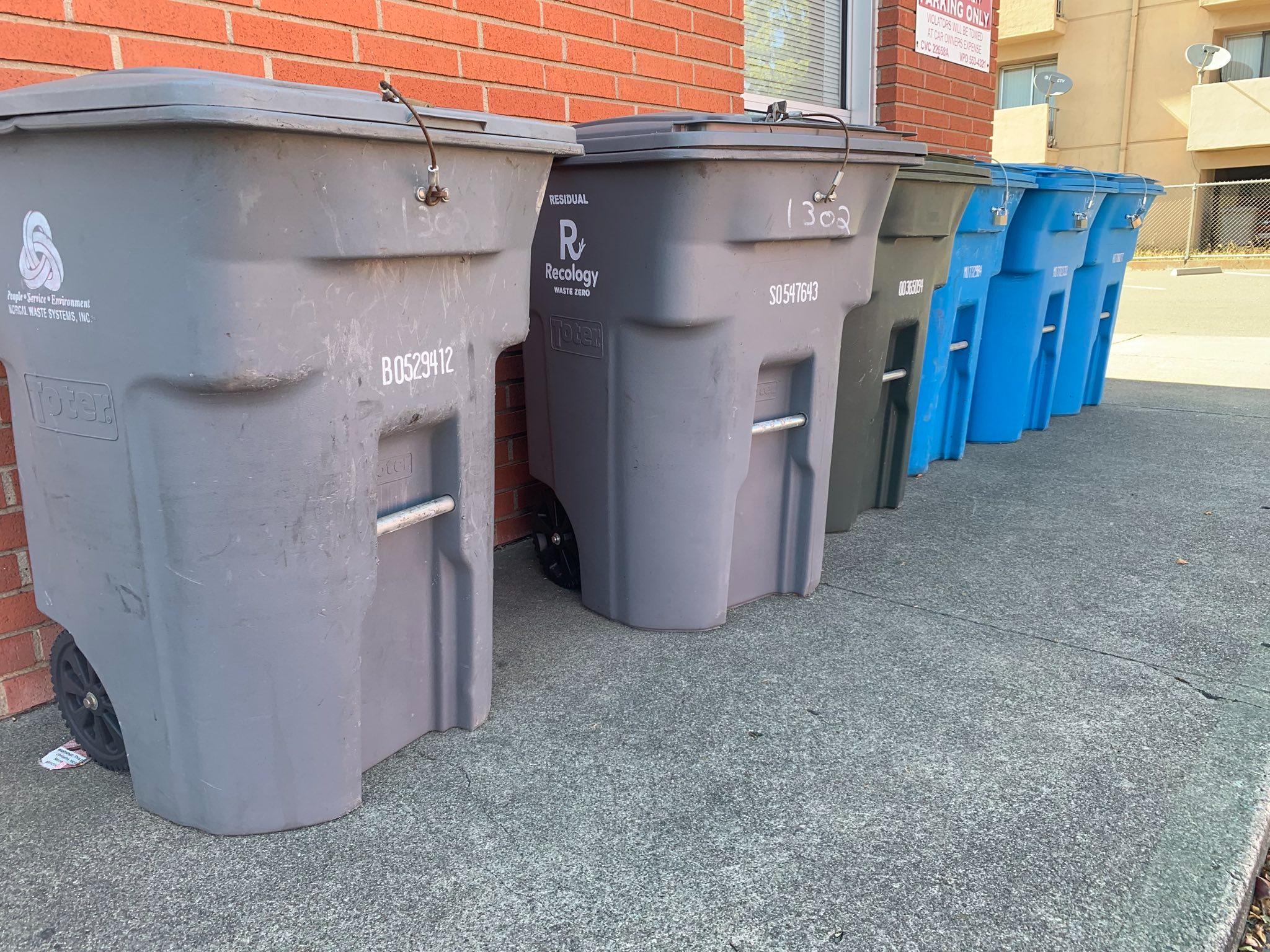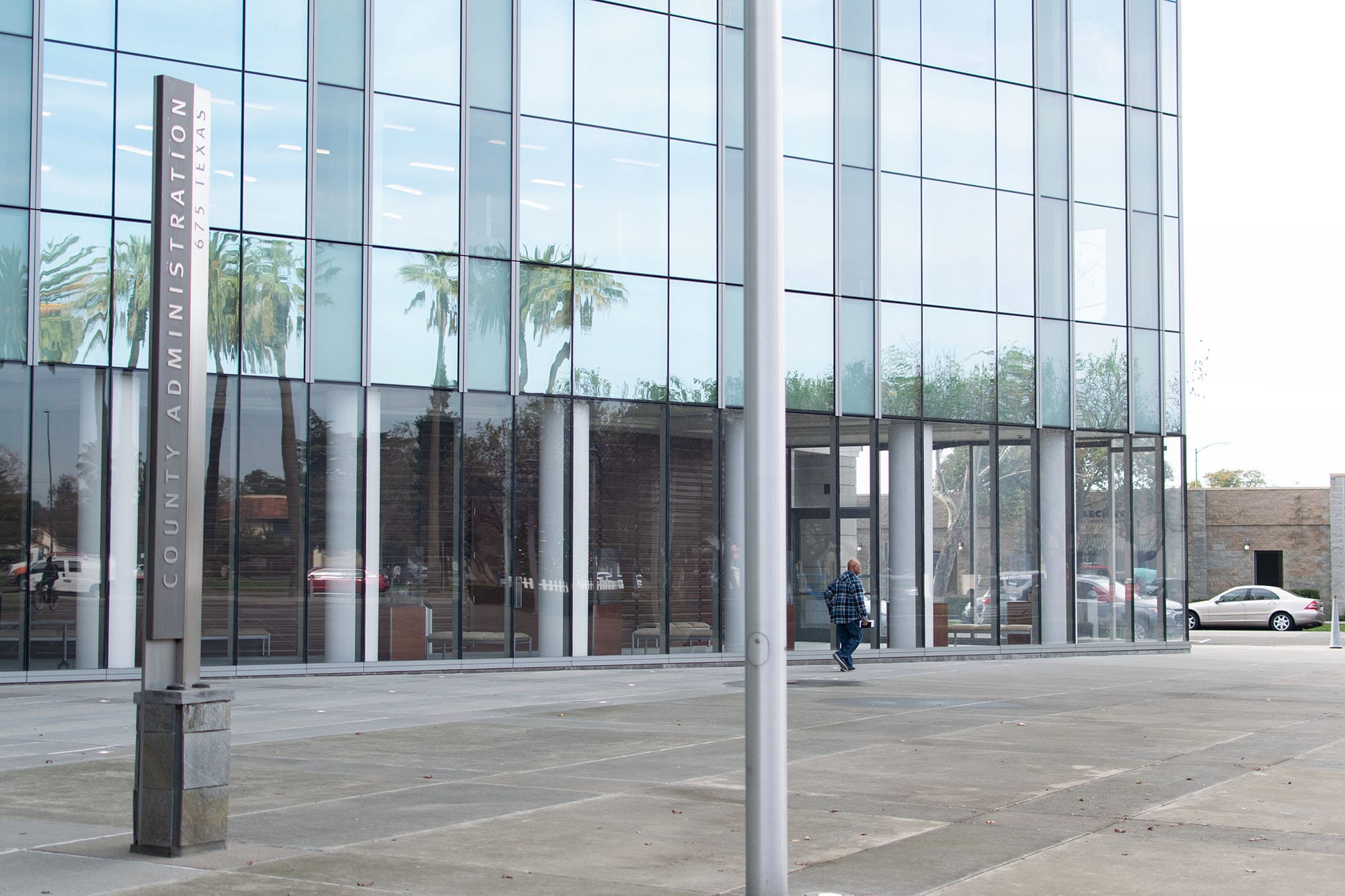VALLEJO – The Vallejo City Council amended its franchise agreement with trash hauler Recology Vallejo on Tuesday, as the city looks to comply with new state regulations requiring municipalities to divert organic waste from landfills.
Tuesday’s move comes a week after the council voted 6-0 to raise residential and commercial garbage rates to pay for the now-required services under the new unfunded state mandate. Councilmember Mina Loera-Diaz, District 3, was absent from the June 21 meeting.
Residential customers will now pay $41.57 per month for use of a 32-gallon trash can. Similarly, a 64-gallon garbage can will now cost customers $67.45 per month, an increase of $5.26. Finally, customers will pay an additional $7.27 per month – or $93.32 yearly – for use of the 96-gallon trash can.
Customers who pay prior to the 15th day of each month will receive around between $2 to $5 discount. Meanwhile, commercial customers can expect to pay $20 more per month over the next two years.
California Senate Bill 1383 — signed into law in September 2016 — requires municipalities to implement organic recycling by diverting organic waste from landfills. Using 2014 levels, municipalities must implement programs to help the state reduce the amount of organic waste disposal by 75% by 2025 or risk being served with administrative civil penalties per violation.
Nearly half of the $4.5 million in additional services will go toward processing the organic waste, which residential and commercial customers can put in green bins. The bins originally were for yard clippings and vegetative matter but, under the new regulations, customers are required to place leftover food scraps, food-soiled paper like pizza boxes and coffee filters, napkins and paper towels in the green bins.
In addition, Recology Vallejo will receive $1.9 million to clean up items dumped illegally in the city. Mayor Robert McConnell said he wanted to see the city receive a noticeable return on its $1.9 million payment to Recology for blight reduction.
“I see no reason, going forward, why this city should not be spick and span, and if it’s not, I think there are going to be some very serious questions and allegations raised,” McConnell said. “They will be pointed at the council, but they will also be pointed at [Recology Vallejo] management.”
Vallejo originally awarded Recology a ten-year contract, recycling, and bulk waste collection in 2016. The amendment adds five years to the term to pay off the cost of adding trucks and equipment to comply with the new law.
The amended agreement also includes route reviews, outreach about the new regulations, the hiring of a waste zero specialist that will provide audits and outreach to residential and commercial customers. Recology is providing additional collection services, allowing customers to request that the trash hauler pick up bulk items four times a year, up from the two bulk pickups under the current contract.
The city will evaluate Recology next year, when it will be able to request a 10-year extension to the contract.
McConnell successfully added his own term that Recology provide any video of illegal dumping captured by the cameras mounted to their garbage trucks.
“We want them to use the cameras if they are out there, driving throughout the city everyday they have the opportunity to spot these things,” McConnell added. “We need more eyes on the road. This is an opportunity, I think we need to take advantage of it, particularly since the ratepayers are paying for those trucks and cameras.”
Derek Crutchfield, the city's acting environmental services manager, expressed optimism to McConnell regarding the amended agreement with Recology.
“We have a bunch of new services and we’re going to be in compliance with SB 1383, which will be good for us, as you know, that if we’re not in compliance with SB 1383 then we can face up to $10,000-a-day fines,” Crutchfield said. “So we need to be in compliance, and Recology is our partner and they are going to help us get there.”
Councilmember Katy Miessner, at large, was absent from Tuesday’s meeting.
Before you go...
It’s expensive to produce the kind of high-quality journalism we do at the Vallejo Sun. And we rely on reader support so we can keep publishing.
If you enjoy our regular beat reporting, in-depth investigations, and deep-dive podcast episodes, chip in so we can keep doing this work and bringing you the journalism you rely on.
Click here to become a sustaining member of our newsroom.
THE VALLEJO SUN NEWSLETTER
Investigative reporting, regular updates, events and more
- government
- Vallejo City Council
- Vallejo
- Recology
- Mina Loera-Diaz
- SB 1383
- Robert McConnell
- Derek Crutchfield

John Glidden
John Glidden worked as a journalist covering the city of Vallejo for more than 10 years. He left journalism in 2023 and currently works in the office of Solano County Supervisor Monica Brown.
follow me :




